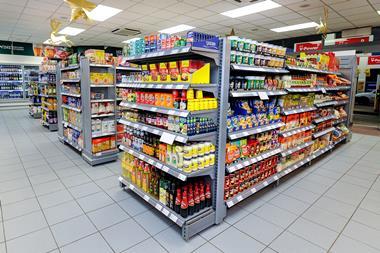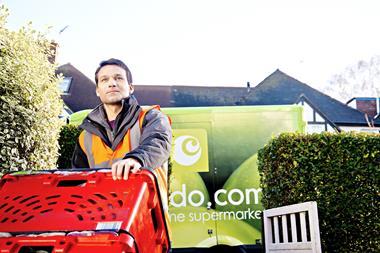With Brexit negotiations disrupting the economy, investment and confidence, renewing focus on customer satisfaction has never been more crucial.
Retailers are not always as good at focusing on the customer as they think they are.
Standing still isn’t a strategy – to survive and prosper, businesses must innovate and fully understand customer life stages such as home moving.
Uncertain times can mean inward retreat – holding back investment, putting off decisions and slowed innovation – but this is a fatal error.
Companies failing to innovate will be abandoned for competitors that do.
And it’s not just traditional industry that is worried about obliteration. "If we start to focus on ourselves, instead of focusing on our customers, that will be the beginning of the end,” Amazon boss Jeff Bezos reportedly told staff last month.
"Amazon is not too big to fail… I predict one day Amazon will fail." The business' goal, he said, "was to delay that”.
Preparing for a change in shopper behaviour
We are experiencing unprecedented uncertainty in Britain as Brexit looms.
The UK didn’t witness the “instant DIY recession” George Osborne predicted in 2016, but there are signs that consumer behaviour is shifting.
“The referendum didn’t lead to a downturn because the 17 million people who voted Leave believed that it would be positive for the economy and they are the consumers whose confidence has driven growth,” says political economist and author, Dr Stephen Barber.
“But there are serious signs the prospect of being outside the single market will hit consumers and businesses who sell to them. That engulfs retail.”
One important indicator is the number of people moving home, which has been flat.
The impact on big-ticket-item retailers – for whom this group represents a large proportion of their customers – is acute.
“Companies that invest in the future and innovate according to customer needs will be the ones that prosper”
Dr Stephen Barber, University of Bedfordshire
Home movers represent good business opportunities but, as illustrated in our recent Retail Voice article, many retailers of high-value, low-frequency products don’t focus on the opportunity presented by the customer life stages that create key moments to engage them.
Keeping your head down might be the easiest thing to do – and seemingly represent the lowest risk – but nothing could be further from the truth.
“Companies that invest in the future and innovate according to customer needs will be the ones that prosper,” adds Barber.
“Remaining in a world that’s gone is dangerously flawed.”
It is essential to recognise the importance of the customers we have and understand that a large proportion simply have to spend money due to their life stage, Brexit or not.
The good news is there is data available at a fraction of the cost of a TV or billboard campaign, showing exactly who those customers are, precisely how to reach them and the proposition most likely to appeal.
Knowing your customer in this disruptive age is a principle businesses cannot afford to forget.

Ian Lancaster is chief executive of TwentyCi
Click here to learn more about the science of buying behaviour.
In case you missed it:
The retail test: are you checking for customer blind spots?
Deal or no deal: how to drive big-ticket purchases post-Brexit





























No comments yet